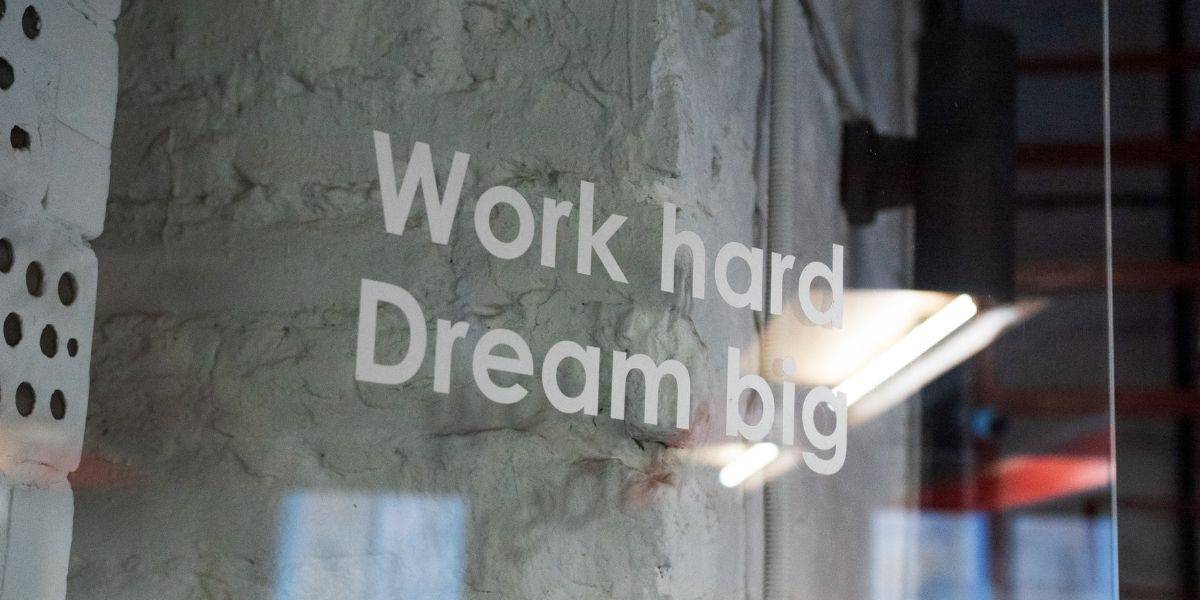Some people think that when we talk about building a great and thriving corporate culture we are talking about implementing perks like a games room, napping pods, paid time off for volunteering, bring your dog to work policies, and places where you can wear your sweats to work and come and go as you please as long as you achieve your goals.
In this new ‘business as unusual’, that kind of thinking can extend to encompass human-centered work to accommodate homeschooling and child and elder care, and job or work sharing arrangements.
These ideas fit some cultures but not others and they aren’t necessarily the right ingredients for every culture.
Your culture should fit your reality
I was speaking at an event near Montreal a few years ago and I described the culture of a company where I assisted with some training and development of new recruits.
I shared that it’s a demanding place where contributors are expected to work from 8 to 8….and then more at home. Failure to deliver is not tolerated and excuses are not accepted. Personal issues like child care, traffic, migraine headaches or other obstacles are up to the employee to resolve without ever “letting them see you sweat”.
I’m inclined to believe that their culture has changed somewhat after Covid-19, but for the sake of my point here I’ll use them as an example.
One audience member asked me “How would you go about making that company change?” My answer may surprise you. I said “I would not suggest they change.”
Let me explain. Their culture is strategic and attracts and maintains people who thrive in that kind of environment. The company has a clearly defined employer brand and is crystal clear about expectations during the onboarding process so candidates know the contribution and sacrifices they are going to have to make in exchange for employment. This employer branding and culture strategy govern the recruiting and training process as well as benefits, compensation and training.

Why is a demanding culture necessary in some environments?
A demanding culture like this one is exactly what some individuals need and want to thrive at work. Secondly, the demands are in the bedrock of the employer brand, the company is clear and honest about it from the beginning and its reputation even precedes it. This means that those who will not thrive in that environment need not apply and most don’t.
For those who do, the carefully designed interview process will gracefully vet them out for the benefit of the company and candidate alike. The process saves much grief on either side.
The company attracts and maintains top talent and they achieve their organizational goals so there is no good case for changing.
But let me be very clear about an important point about attracting and retaining top talent through culture strategy – it does not come for nothing.
Just money is not enough
The workforce that I am speaking of is very well compensated for their sacrifice and commitment, and not just financially. Yes, the financial rewards are there and the employees are paid well. That being said, we all know that the golden handcuff strategy only goes so far before it backfires. I cannot stress enough that salaries alone do not lead to a thriving culture.
The golden handcuffs need to be constantly embellished and you will never satisfy the demands for more money, if money is your only compensation. Once a person knows that they are fairly paid by industry standards, the issue of money is off the table.
Employees are engaged and productive because of a combination of factors that appeal to the demographic that make up the ideal employee profile. In this case, employees get to work for a best in class organization that puts high end products on the market. The workplace is not only exceptionally beautiful, it offers comforts and conveniences that are highly conducive to creativity and productivity.
Employees here also benefit from sound, professional leadership and management practices and they gain ongoing, transferable skills training and leadership development. They gain valuable experience from a prestigious company that is firmly established as an industry leader.
In exchange for the grueling hours and relentless demands placed on them, these dues that the employees pay effectively translate into a career maker.
If career making is what your ideal employee wants, then career making is what your culture should promise. From there, you have the well established foundation for a workforce and a culture strategy that will support the achievement of the rest of your strategic goals.

A culture change can happen quickly
To further answer the question from my audience member who asked what I would do to change that environment, I would counsel the company to watch for signs that would indicate that a culture change is on the horizon.
One sign would be a slow down in the attraction of top talent. This would cause the need to explore whether there is a shift in values among those who make up the talent pool.
Another sign would be an increase in turnover. This too would indicate a possible values shift. Perhaps what made the company’s culture so appealing to a segment of the demographic at one point no longer holds the same appeal.
Also, I would advise them to watch for the changing needs within the population of the workforce. Do they have many young people who will soon be going on parental leave, and then return with a new set of values and priorities?
Do they have many people responsible for the needs of aging parents or approaching the age of retirement? Has the bulk of the workforce been there so long that there is a famine of new ideas, creativity and vitality?
If the need to build a career is no longer there, then the employee will lose their motivation and willingness to engage in the culture that is now in conflict with their priorities.
Being attentive to trends and shifts in values is the key to a thriving work culture
No matter what your culture strategy, a company must remain sharp to demographic trends and shifts in values. The company must never assume that it will always work one way just because it has always worked that way.
“That’s just the way we do things around here” is not a strategic statement but a recipe for certain demise, especially in this rapidly changing environment.
What is your brand promise? What kind of a workforce do you need to deliver that promise and who do you need to be as a leader to build and guide that workforce?
These are questions I am constantly asking myself and my clients and students. The answers to these questions are different for every organization, and I challenge you to ask them yourself.
Let me know your answers in the comments below!





0 Comments